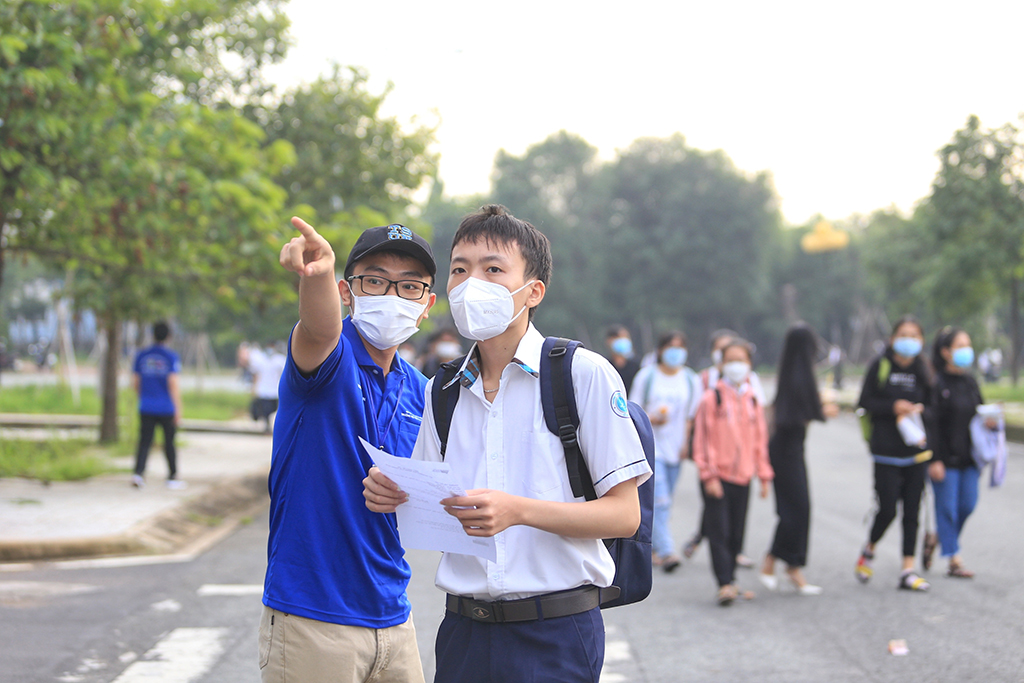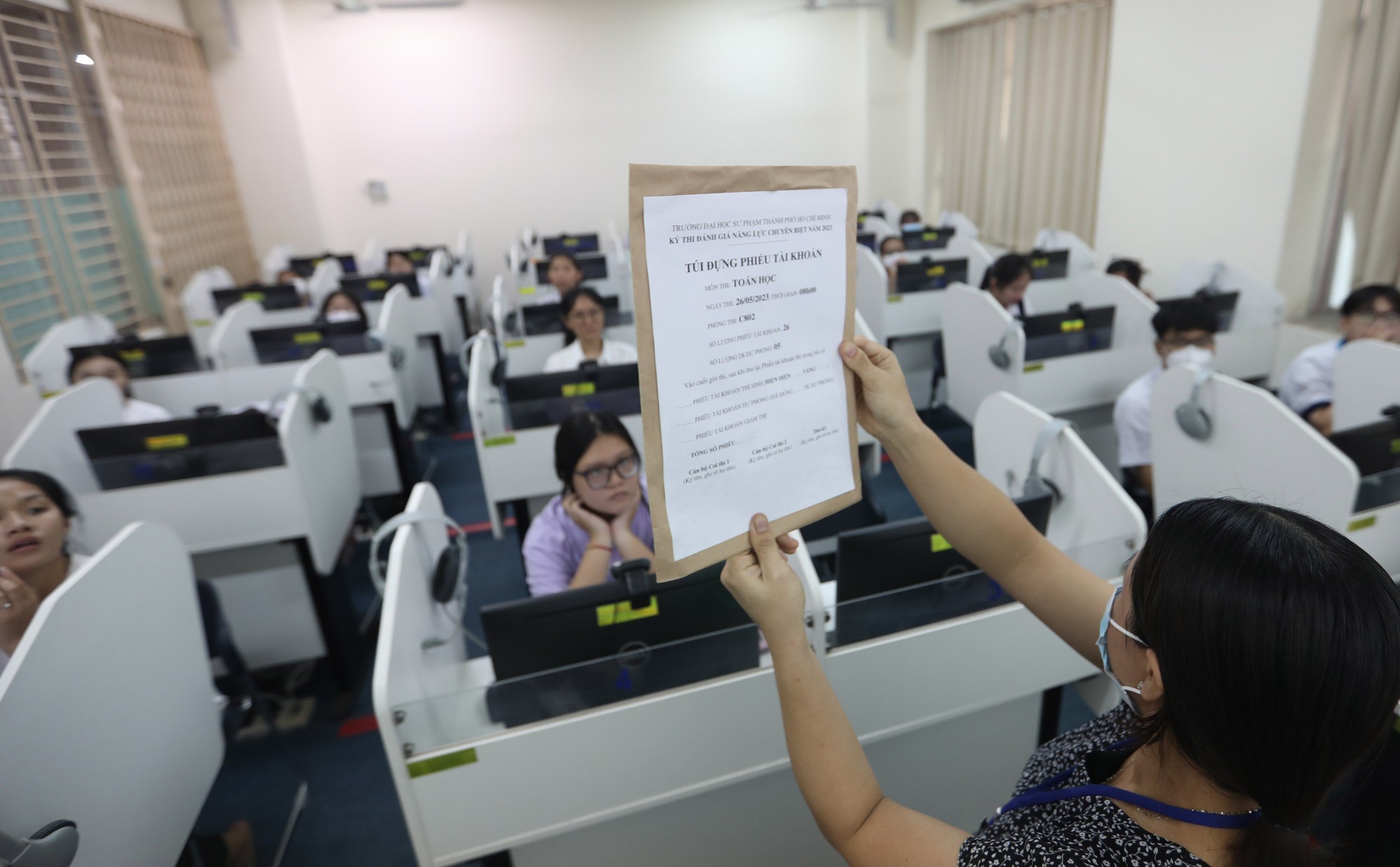In 2024, although the mode of entry into core universities remains stable, there are still many new points tha...
In 2024, although the mode of entry into core universities remains stable, there are still many new points that applicants need to pay attention to. In particular, the opening of new training disciplines to adapt to social needs.
Separate admission criteria for examination results
Keeping the admission method stable but adjusting the ratio of admission quotas between modes is the direction for enrollment in some schools in 2024.
 In 2024, some schools plan to increase admission quotas based on their own exam results
In 2024, some schools plan to increase admission quotas based on their own exam results
In the same trend, the Ho Chi Minh City University of Education plans to increase the quota of admission methods based on the results of specialized skills assessment tests in 2024. Le Phan Quoc, deputy director of the school’s training department, said the school should remain stable with two sets of exams scheduled in May and July, with the same format and number of subjects.
Meanwhile, the Ho Chi Minh University of Social and Human SciencesCity Ho Chi Minh City plans to use international certificates and foreign language certificates in accordance with the 6-level competency framework used for Vietnam upon admission next year. Dr. Pham Tan Ha, Vice-Rector, said the university plans to adjust the assessment criteria with the priority admission method in accordance with the regulations of the National University of Ho Chi Minh City.
Mr. Nguyen Thanh Tung, head of the training department of the Ho Chi Minh City University of Culture HCM, said that in 2024, the school enrollment target should increase slightly and spend about 60% of the admission quota based on the high school graduation exam, 40% of the high school transcript target.
 Candidates take the Specialist Skills Assessment Exam from the Ho Chi Minh City University of Education. HCM
Candidates take the Specialist Skills Assessment Exam from the Ho Chi Minh City University of Education. HCM
Numerous schools open the integrated circuit design industry
By 2024, many universities are expected to add many new training disciplines. For example, Ho Chi Minh City Banking University. Ho Chi Minh City will open a number of new training programs and disciplines, such as data science, marketing, international trade, logistics and supply chain management, and fintech.
Together in the system of the National University of Ho Chi Minh City. Ho Chi Minh City, the University of Natural Sciences, is developing a project to open a major training course in integrated circuit design and semiconductor technology, which should welcome students next year. From majors, the school will move to 2 independent training disciplines for 4 years with a total of 135 to 140 credits, graduates will receive a baccalaureate in engineering.
What's new in the National University Entrance Exam in Ho Chi Minh City?
In 2024, the National University Entrance Exam in Ho Chi Minh City continues to maintain stability, with two exam sessions: the first session on April 7th and the second session on June 2nd, 2024. Candidates can register for the first session from January 22nd to March 4th, and for the second session from April 16th to May 7th, 2024.
In 2024, there are two new test locations in Binh Phuoc and Tay Ninh in addition to the existing 21 test locations in provinces and cities: Ho Chi Minh City, Da Nang, Quang Nam, Quang Ngai, Binh Dinh, Phu Yen, Khanh Hoa, Dak Lak, Lam Dong, Binh Thuan, Binh Duong, Dong Nai, Ba Ria - Vung Tau, Tien Giang, Ben Tre, Dong Thap, Vinh Long, An Giang, Kien Giang, Can Tho, and Bac Lieu.
The structure of the exam remains stable with 120 objective multiple-choice questions, which candidates complete in 150 minutes. With a total of 1,200 points, the exam consists of three parts: Part 1 uses language skills (400 points with 40 questions); Part 2 has a maximum score of 300, including 10 high school mathematics questions, 10 logical reasoning questions involving inference and identifying logical rules, and 10 data analysis questions with provided data tables; Part 3, problem-solving, carries a maximum of 500 points and includes questions related to natural and social science knowledge, with each field of chemistry, physics, biology, geography, and history having 10 questions.
Via Bao Thanh Nien